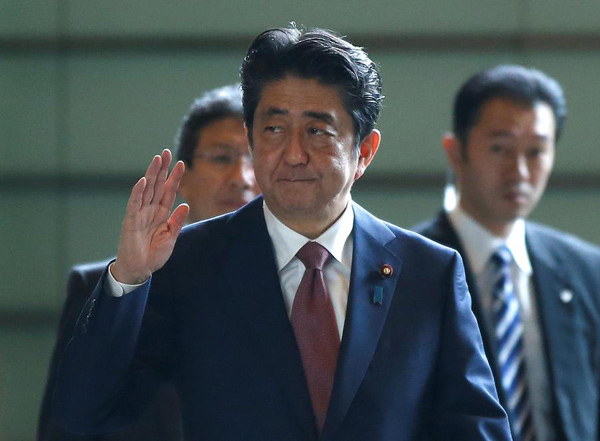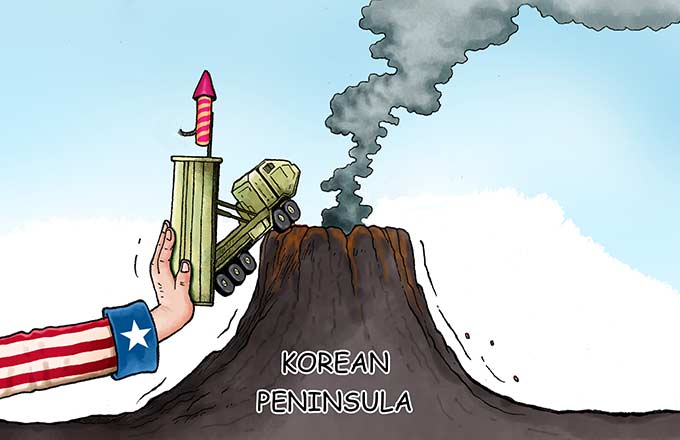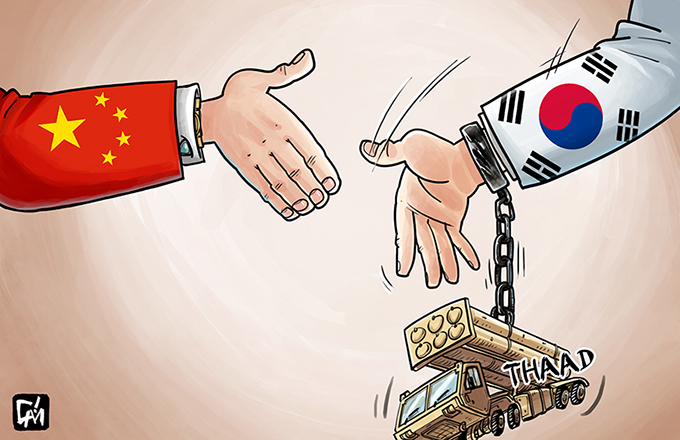Abe seeks to steady the ship
 |
|
Japan's Prime Minister Shinzo Abe (C) arrives at his official residence in Tokyo, Japan, August 3, 2017. [Photo/Agencies] |
Japanese Prime Minister Shinzo Abe on Thursday appointed a number of veteran politicians that are close to him to high offices in the ruling Liberal Democratic Party, in a move to reverse his all-time-low approval ratings and display a united party. His Cabinet reshuffle shows that Abe is trying to heal the fractures within the party.
The resignation of former defense minister Tomomi Inada, an Abe protégé, a week ago, was a wake-up call for the Japanese prime minister that his favoritism was reflecting badly on him. Replacing Inada, who had no expertise in managing defense affairs, with one of her predecessors Itsunori Onodera, might restore some unity and sense in the Abe administration.
And Abe needs solidarity and stability in the top echelons of his administration. Former foreign minister Fumio Kishida, a front-runner in the race for the LDP presidency when Abe's term ends next year, will chair the party's Policy Research Council, a "bespoke" senior party post that could significantly benefit him in the future contest.
Seiko Noda, a former chairwoman of the LDP General Council and a prominent contender for the party's leadership in 2015, when she lost to Abe, has been named minister for internal affairs and communications. The presence of senior figures such as Noda and Kishida is expected to give a lift to the scandal-mired LDP.
That Abe invited senior LDP lawmakers, even potential rivals, to be members of his new Cabinet also points to the ineffectiveness of the opposition parties. Renho Murata, his chief opponent, resigned as leader of the Democratic Party of Japan last week because of her failure to take political advantage of Abe's growing unpopularity.
With virtually no opposition from the other parties, Abe faces little challenge. Despite his waning public trust, some polls suggest it is below 30 percent, Abe will survive if the reshuffle solidifies his administration.
Yu Qiang, a researcher of Japan studies at University of International Relations in Beijing

























